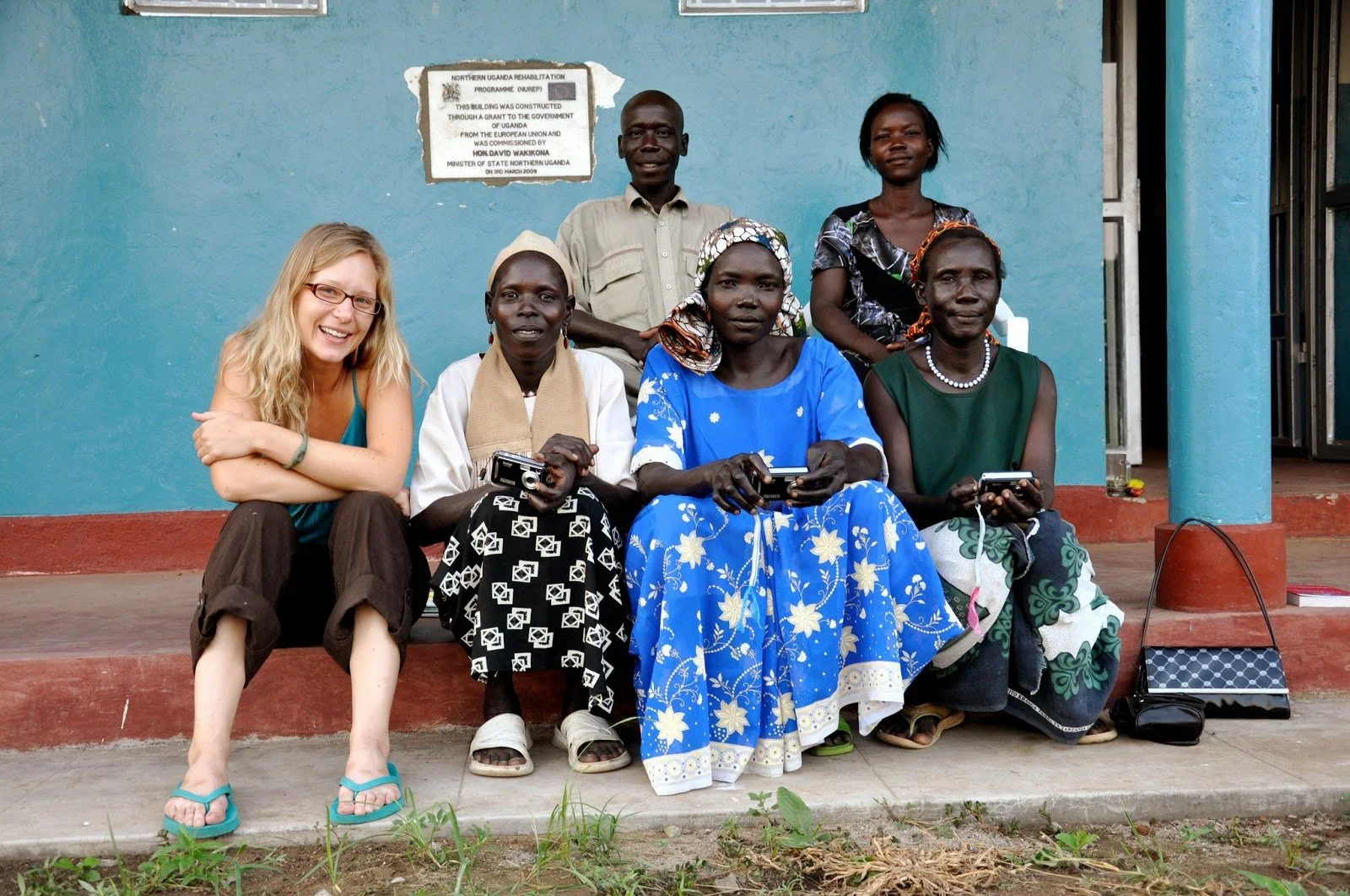Whenputting your idea into action, you can get stuck at a mental crossroad on whatdirection you should take. When looking to the right, you see yourself strandedbecause you the lack capital to get going. When looking to the left, you seenothing but the roadblocks of self-doubt and fear. When looking straight ahead,you see an open road with twists and turns leaving you uncertain on where itwill end. While many may remain paralyzed at this intersection, there are thosewho will take a completely different direction by paving their way.
JillLaLonde is one those people who was willing to pave her own road. Whileinterning in Northern Uganda as part of her master’s degree in 2009, she saw an opportunity tohelp four women start a cooperative that would become the Ogolo Women's BananaProject (OWP). Her steadfast determination and proven results demonstrated thatyou start small and still make difference with those you serve. She was aninspiration to me to start doing something no matter what with Uniting DistantStars
 |
| Jill at the left sitting with the four women she partnered with to start the agricultural cooperative. Photo was courtesy of Ogolo Women's Project Facebook Page. |
Ihave known Jill since 2010. We are both active volunteer leaders with the MinnesotaInternational NGO Network, an organization serving individuals andorganizations working on global issues such as poverty, education, health, etc.She also has been a faithful supporter of Uniting Distant Stars. It was throughworking with her at MINN that I got to know about her project in Uganda.
Itwas exciting to watch what she was doing from the sidelines. Her vision wasclear when she returned to Minnesota and quickly developed a plan to raisefunds to launch this project. Though she did not have a registered organizationor fiscal sponsor, she was confident that she could reach her goal. Shecarefully strategized her approach that led to her success in raising thecapital needed to get started.
TheOgolo project has been steadily growing these last few years and is showinggreat promise. In 2012, she partnered with a local NGO--Community Empowermentfor Rural Development (CEFORD)--in Uganda to oversee the program. CEFORD iscommitted to this project and reports on its activities quarterly.
Inthe recent quarterly report, it showed that this collaborative effort had amembership of 85 women including Jill’s 4 by the end of 2012. It seems that there is a growing interestwith this project, because it provides savings andlending opportunities through Village Savings and Loans training in financial literacy,business skills, reading and writing, and banana production.
Furthermore,it was the women of the Ogolo displacement village, who saw how growing bananaswould improve their economic standings while providing for their families.Ogolo was one of many areas in the Northern Uganda that is still recoveringfrom the brutal war waged by the Lord Resistance Army (LRA) for nearly twodecades. It was during LRA’s reign under the leadership of Joseph Kony thatcaused a great deal of disruption for these women and their children. The LRAwas notorious for kidnapping and conscripting children as soldiers (see thedocumentary
Children of War to learn more).
Basedon all they endured during the war, the women were looking for something thatwould not be so labor intensive and that is why they chose banana production.The women shared in the recent quarterly report that the “banana is both a foodand cash crop that has ready local and external markets.” They easily saw thepotential of growing bananas as a viable business opportunity.
SoJune 2013 it was time to start one-year cycle for the Ogolo Women ImprovedBanana Project that “was implemented by Ama-Alu Ogolo Women Group throughCEFORD and Arinyapi Sub County Local Government Production Department.” Thefunding for this project has come from Jill and her supporters. Some of itsgoals were to increase banana production by 15% and have its members adopt thisproject as a food and cash crop by 50%.
 |
| This was taken early February 2014 and it shows how tall the banana trees have grown. Photo was courtesy of Ogolo Women's Project Facebook Page. |
In following the Ogolo Women's Project Facebook page, the banana crops are growing despite lack ofrainfall and occasional fires from the February 2014 post. On April 5, theyposted about farmers from two sub-counties--Ciforo andDzaipi—visited Ogolo banana site as part of a learning tour. As cited in thisFacebook post, the farmers saw “firsthand the good agricultural practices andgroup farming techniques. What a great boost to OWP farmers to know they're amodel across the region!”
 |
| Here are some of the local farmers who visited to the site to learn more about the Ogolo project. Photo was courtesy of Ogolo Women's Project Facebook Page. |
Theproject cycle ends May 2014 and it appears that they are on target of meetingtheir goals. It is great to see how Jill had a vision based on discussions shehad with the four women she met in Uganda in 2009. This then evolved into acollaborative project with CEFORD and other entities to boost the economicwelfare of the women in the Ogolo village. Through the effort of all the OgoloWomen’s Project stakeholders, they were able to implement the banana productionand soon will see the “fruit” of their labor.
Jill’spassion and commitment to the women of Ogolo is another example that no matterhow small the effort, the results can have a big impact on the community itserves. Clearly her vision helped her look past the hazards in the road towhere she saw that the path less traveled was the best route to take. Andwithin a few years she was able to find her destination for success.
CongratsJill on all that you have accomplished with the ever growing Ogolo Women’sProject!




